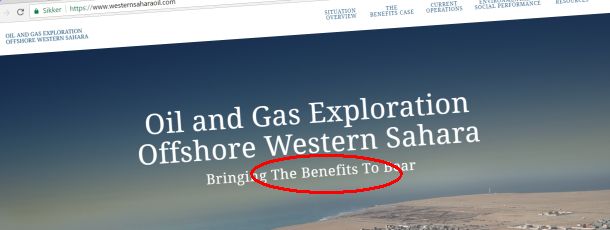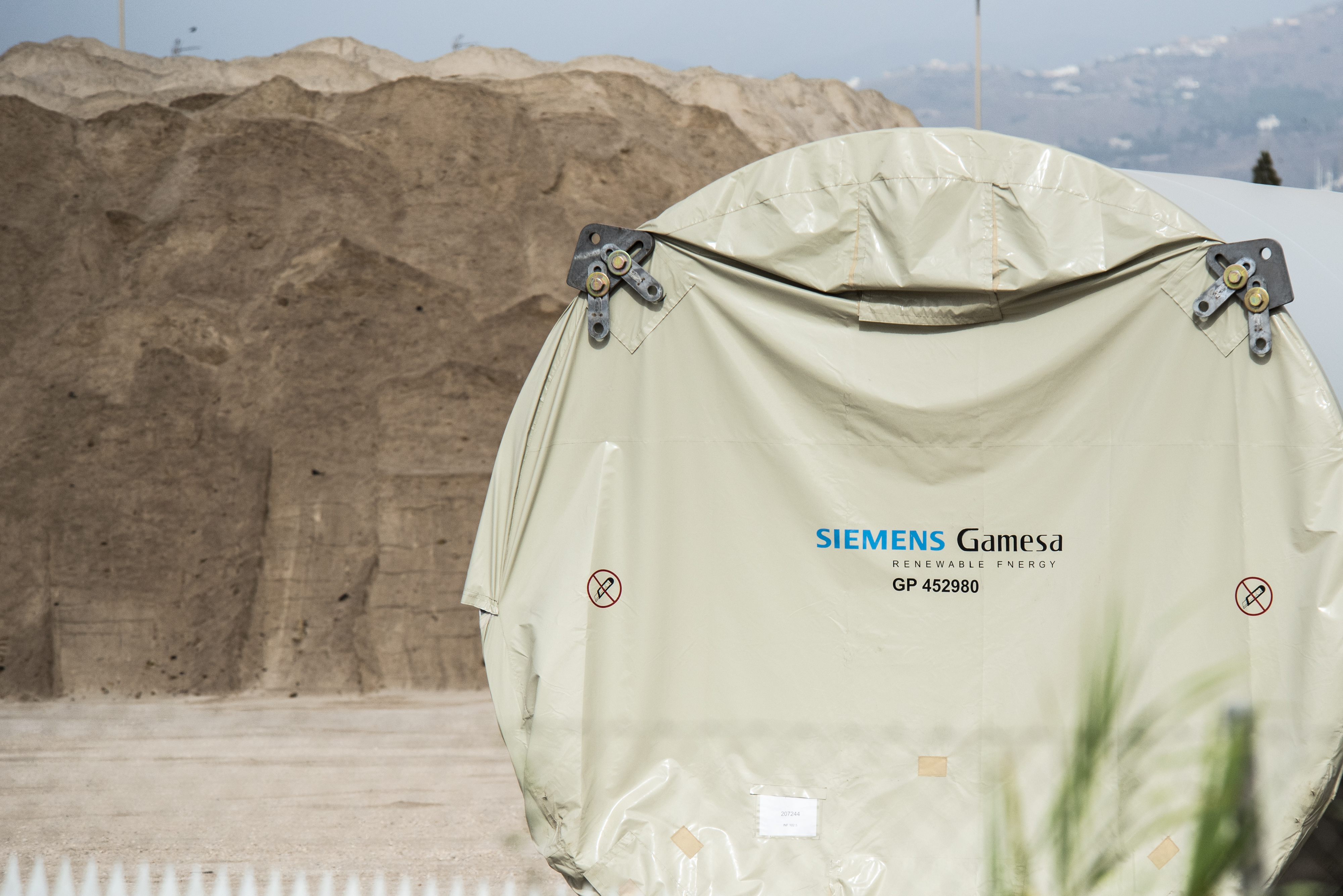
Kosmos Energy has decided to keep their website defending Western Sahara oil search - even after they have left the territory.
On 9 January 2015, at a time when the US energy company Kosmos Energy received massive critique from the Western Sahara people for its first ever oil drilling in the territory under 40 years of Moroccan occupation, the company established a website to argue why it wasn't doing anything wrong.
Kosmos has now announced that, even after its withdrawal from the territory, it wishes to maintain the site, in order "to showcase our belief that responsible resource development has the potential to create significant social and economic benefits and to provide energy security for the region". The site can be found on www.westernsaharaoil.com The properties of the website was last updated 2 January 2018, just over a week after the company withdrew from the territory on 21 December 2017.
The entire website is based on the premise that it is legal and right to operate in the territory as long as the local "population" benefits from such operations.
The site even makes incorrect references to UN resolutions and documents, including a UN Legal Opinion from 2002 about oil search from 2002, stating that the Opinion "concluded that exploration and development of resources in non-self-governing territories are consistent with international law if they are in the best interests of people in those territories".
That is incorrect. The Opinion specifically stated that two prerequisites must be met in order for such activities to be lawful: such oil exploration must be in line with the wishes and the interests of the people. The key point is the word 'wishes'. No oil search can take place if the people there do not want it. Kosmos never obtained permission from Western Sahara for the oil search - something that was done uniquely in partnership with the neighbouring country of Morocco.
The author of the UN Legal Opinion states that Kosmos is violating the principles of the Opinion and basic Corporate Responsibility standards. The Court of Justice of the EU (article 106) specifically states in a judgment in 2016 that the issue of benefits is not necessary to assess - the key test is whether the people of Western Sahara have consented to business deals.
Yet, the Kosmos propaganda site advocates that their operations - signed with the government of the occupying power - are to the benefit and therefore positive to Western Sahara.
On the frontpage of the website, a statement has been made regarding the continuation of the site:
"This website was originally developed to explain Kosmos Energy’s work offshore Western Sahara and the potential benefits these activities could bring to the people of the territory. Following a review of our global operations, Kosmos reached the difficult decision to withdraw from our exploration commitments offshore Western Sahara after more than a decade of significant investment in the territory. This website will remain online to showcase our belief that responsible resource development has the potential to create significant social and economic benefits and to provide energy security for the region."
Kosmos Energy and the Moroccan state oil company ONHYM in a statement 6 February 2018 decleared that the company "leaves open the possibility to start discussions with ONHYM for a possible return regarding the oil exploration in Morocco". It is not clear what this means. Strangely, Kosmos never left Morocco, where it still has another operation. What could be meant, is that the two parties referred to a return to the controversial block offshore the occupied territory. This would also explain why Kosmos would keep its propagada website.
"The discovery proved to be uncommercial which led to abandoning the well that cost $85 million. The company, however, stressed the well’s important exploration value as it will reduce risks of the next exploration operations in the basin", OAPEC mentioned in a report
SRI update
The following overview enlists stock-exchange registered companies with current or recent operations in occupied Western Sahara. Updated 7 May 2025.
Bureau Veritas suggests Western Sahara is Morocco
The French company - which claims to excel at understanding of regulations - seemingly fails to know in which country it is supporting businesses.
Wärtsilä into politics - defends operations on occupied land
The Finnish company Wärtsilä refers to Western Sahara as part of Morocco and cites the positions of “certain countries” to justify its operations in the occupied territory.
Siemens Energy misrepresents EU Court rulings
The German multinational - which supplies the Moroccan energy projects in the occupied territory - fails to grasp EU court rulings.


